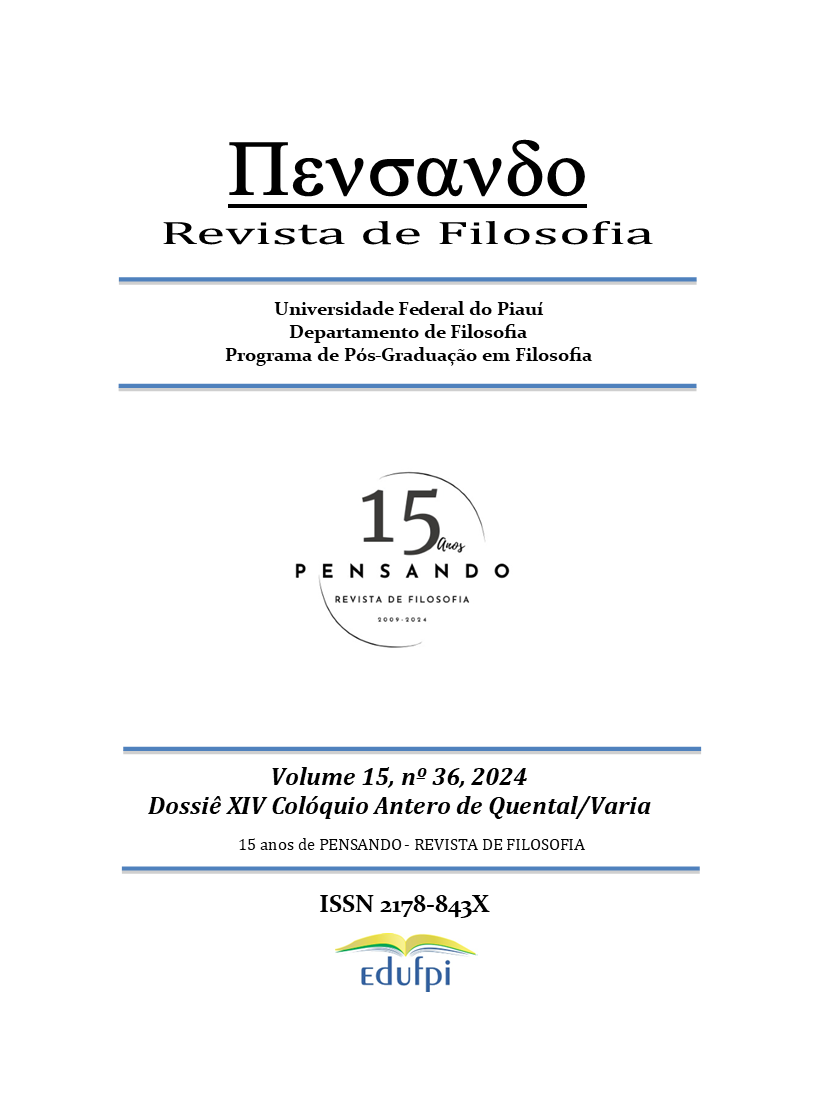Antonio Paim and the Culturalist Philosophy
DOI:
https://doi.org/10.26694/pensando.vol15i35.5419Keywords:
Philosophy, Ethics, CultureAbstract
We want to start by highlighting Antônio Paim's work as a teacher and advisor, due to his sensitivity, humanity and rare ability to bring out the best in students. Regarding the object of his investigations, we found many topics of interest. In Philosophy, he stood out as a historian of ideas, in addition to reviewing the theses of the first generation of Brazilian culturalists and systematizing a culturalist ontology. In this process, he identified two basic ways of thinking: the Platonic-Aristotelian, according to which something underlies what appears to consciousness, known as metaphysics, and the transcendental, whose basic category is the phenomenon, that is, what there is what is shows consciousness, allowing nothing to be known beyond this appearance. These perspectives review problems throughout history, renewing our understanding of the world. Paim observed that the central theme of contemporary philosophy is man, considering it essential to understand him in his moral dimension in that sense proposed by Miguel Reale, man's being is his duty to be. And, based on these references, he established the philosophical foundations of culturalism. In this philosophy, society is the place for the fulfillment of the human person identified by the exercise of freedom, continuous improvement, and moral responsibility. This society is historical, preserving the Kantian tradition. In this way, he accommodated culturalism in a research methodology, establishing the foundations of a transcendental ontology dedicated to the study of man and the role of morality in culture.
References
CARVALHO, J. M. de. Antologia do culturalismo brasileiro. Londrina: EDUEL, 1998. 300 p.
CARVALHO, J. M. de. Contribuição contemporânea à História da Filosofia Brasileira: balanços e perspectivas. 3. ed. Londrina: EDUEL, 2001. 605 p.
CARVALHO, J. M. de. Ética. São João del-Rei: UFSJ, 2010. 240 p.
CARVALHO, J. M. de. O homem e a filosofia; pequenas reflexões sobre a existência e a cultura. 3ª ed. revista e atualizada. Porto Alegre: MKS, 2018. 343 p.
GUIMARÃES, A. C. e PROTA, L. Filosofia e cultura, escritos em homenagem a Antônio Paim. Londrina: Humanidades, 2009. 208 p.
JASPERS, K. Iniciação filosófica. Lisboa: Guimarães, 1987. 159 p.
ORTEGA Y GASSET, J. Qué es filosofía? p. 273-438. Obras Completas. v. VII. Madrid: Alianza, 1997.
PAIM, A. A problemática do culturalismo. Porto Alegre: EDIPUCRS, 1995. 196 p.
PAIM, A. História das ideias filosóficas no Brasil. 5. ed. revista e atualizada. Londrina: UEL, 1997. 760 p.
PAIM, A. Curriculum Vitae. Londrina: EDU
Published
How to Cite
Issue
Section
License
Copyright (c) 2024 PENSANDO - REVISTA DE FILOSOFIA

This work is licensed under a Creative Commons Attribution 4.0 International License.

























